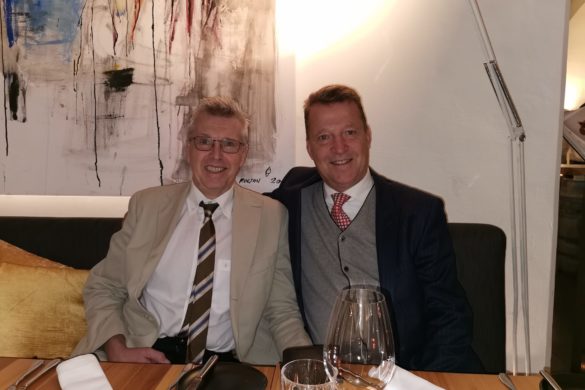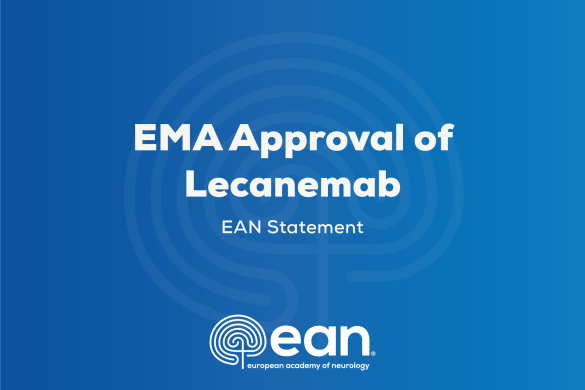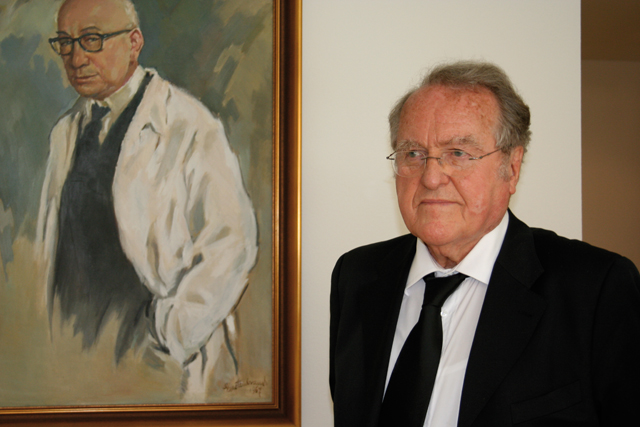Dear EAN Members, dear friends and colleagues,
Today I want to talk to you about national neurological societies. At a time when nations and borders are very much at the forefront of our minds, I want to focus, just for a moment, on the cooperation and unity that is fostered by the existence of these national structures and their relationships with EAN. If individual EAN members are the bricks in the wall of the home of neurology, then the national neurological societies—47 of which are Full Institutional EAN Members—are the mortar that binds them together. This is why EAN invests all the time and effort we can into working with and supporting national neurological societies.
One of the most important things we do in this respect is communicate. My EAN Board colleagues and I have recently met virtually with numerous national neurological societies, to discuss advocacy of neurology and brain health at national level, gender issues, support of young neurologists and many other topics. As expected, it was a pleasure to share ideas with the national representatives from France, Italy, Russia, Germany, Switzerland, Poland, Spain, Britain, Norway, Portugal, and Turkey and I am looking forward to meeting more societies in the coming months.
Even more so to the EAN National Society Forum on 9 June; a unique opportunity for presidents and delegates of all our national partners to get together, exchange views on all the burning issues of the moment and strengthen our cooperation.
EAN National Society Forum
9 June
Another key event will be taking place online on May 31, which will be open for all to join. I wrote in December about EAN promoting a Brain Health Strategy with an equal emphasis on prevention, as well as treatment and care. This event will officially launch that EAN Brain Health Strategy, which has been developed and refined over many months and will soon be published in the European Journal of Neurology. The event, featuring expert speakers as well as stakeholders working on brain health at all levels and health ministers from European countries, will aim to generate discussion—but the strategy itself is the focal point.
European Brain Health Summit
ONLINE EVENT
31 May, 14:00-17:15 CEST
Click here for programme and registration
We want to build a consensus on why action is needed now, and we look to our partners at the National Neurology Societies to build on that consensus by developing and implementing national strategies that adopt the framework provided by the EAN Brain Health Strategy.
The upcoming Global Action Plan (GAP) that the WHO will adopt at the 75th World Health Assembly in May takes a similar approach, in that it also aims to encourage individual countries to launch national strategies. Thus, another aim of our Brain Health Event is to encourage the European countries that already have national brain health strategies in place to share the benefit of their experience with those who do not. Towards the end of 2021, we announced a joint communiqué with the National Neurological Societies pledging their commitment to work together to adopt and implement the GAP and I am pleased to say we now have 43 signatures. These close connections that we have been able to facilitate can ultimately play a valuable role in the success of such international projects.
Here we see the intrinsic importance of national societies to the European community and to our whole discipline, far beyond the limits of their respective countries. Thanks to the spirit of openness and cooperation, the experiences and successes of one country are shared, replicated and adapted in others; and the plans and strategies devised at European level can be put into action in a coordinated way that maximises standardisation and homogeneity across the continent.
Our role at EAN is not only to facilitate these processes, but to offer ideas and resources to support the national societies and their members. The European Training Requirements in Neurology is one such example; a curriculum designed in cooperation with the European Union of Medical Specialists to serve as a guideline for all national societies, with the aim of establishing minimal standards for the qualification of European neurologists in all European Union and other associated countries.
There are many other ways in which EAN and its National Neurological Societies interact, from the 47 Institutional Delegates who represent their countries at the Assembly of Delegates, electing members of the EAN Board, to the Regional Teaching courses we are proud to hold in countries that are unable to serve as host to a full EAN Congress; and of course, the congress itself also provides numerous opportunities and platforms for engagement with and between national societies.
There is no doubt that the ways in which we support, collaborate with, and depend upon the National Neurological Societies will continue to grow, because the benefits are obvious. Cooperation and unity are the driving forces of progress, and I look forward to seeing you in Vienna on 25-28 June to celebrate that unity at our pan-European hybrid congress, EAN 2022, dedicated to our continent.
Best wishes
Claudio Bassetti, EAN President











